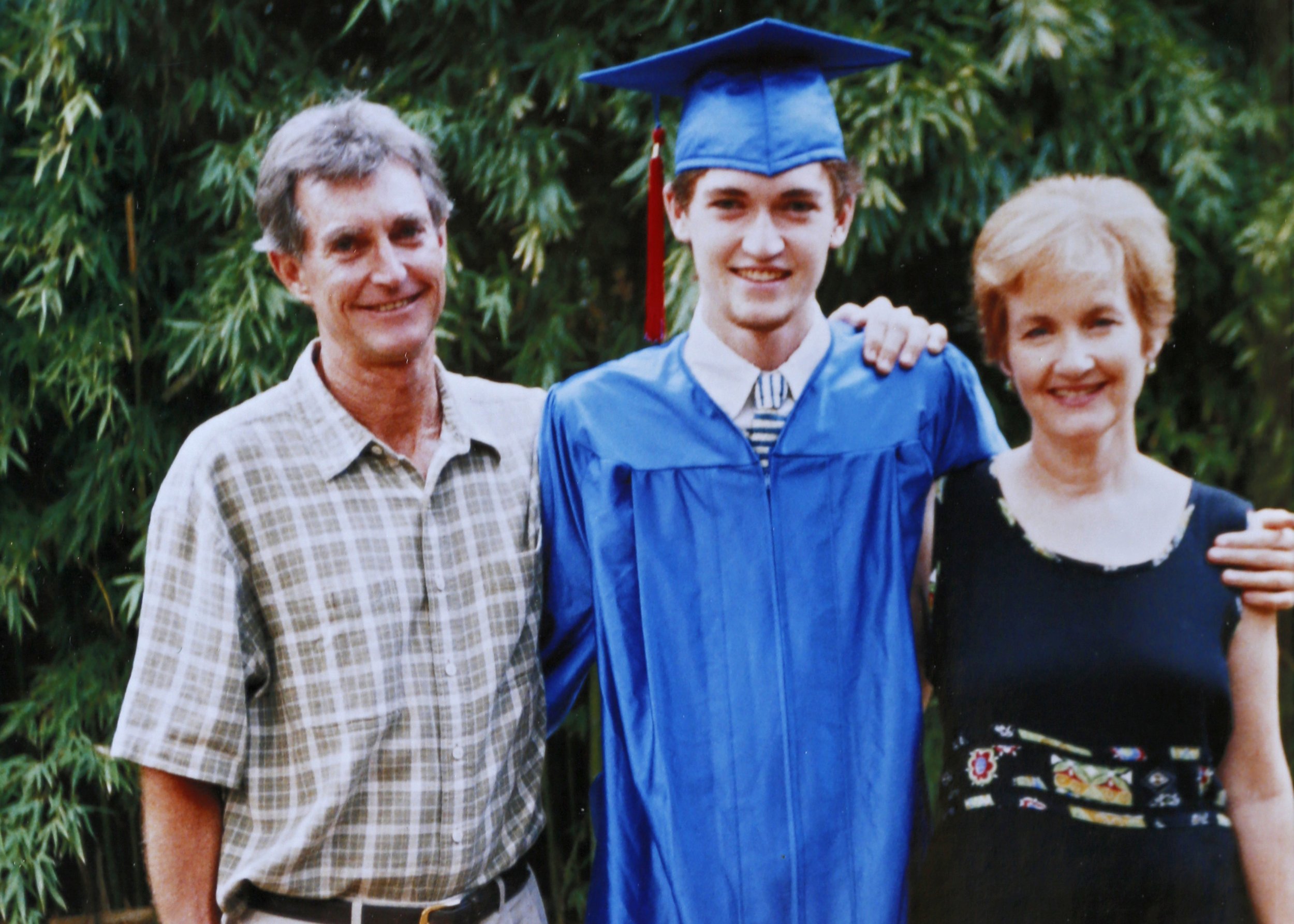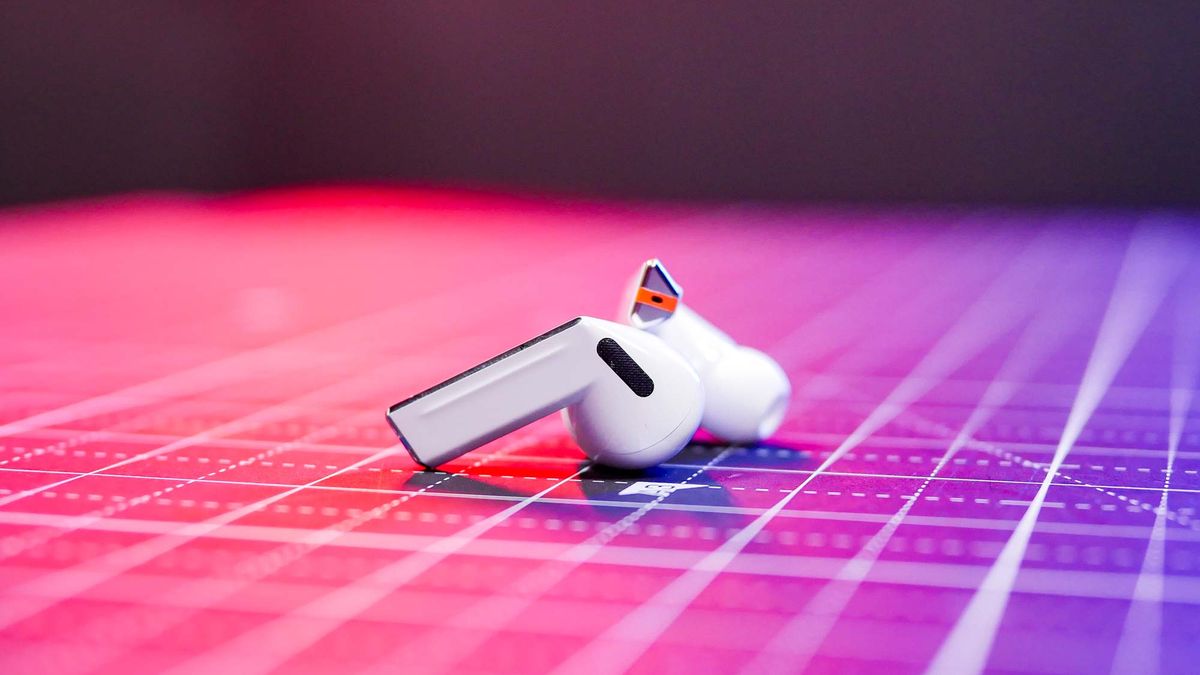During one of many flashback scenes scattered intermittently throughout “Hal & Harper,” a 9-year-old Harper (played by 28-year-old Lili Reinhart) sits in the bedroom she shares with her 7-year-old brother Hal (played by 27-year-old Cooper Raiff). Hal, already a hyperactive people-pleaser before he could spell either one of those words, fills the brief silence before falling asleep with questions. “Did you finish that book you were reading? Did you like it?” “‘One Hundred Years of Solitude’?” Harper says. “No, not yet. It’s about this family where everyone’s super lonely but then it gets even worse because they withdraw and they just become selfish and so miserable.” Then, looking at her wide-eyed, impressionable little brother, she adds, “But maybe it gets better.”


The parallels between Harper’s book report and what her own family is going through are unmistakable, even for a first-grader like Hal. Their father (Mark Ruffalo) is trapped in the throes of depression, brought on by their mother’s very public suicide. Her untimely passing paired with his inability to parent them forces Hal and Harper to grow up too soon and, in doing so, cling to one another in ways both supportive and codependent. How the former survival mechanism manifests is heartbreaking, whether it’s Harper secretly smoking (just like her dad does), Hal struggling to make friends (just like his dad does), or the simple fact that both adolescent characters are played by adult actors, one with tattoos and the other a beard. (Raiff has a lot of fun channeling Hal’s awkward childlike energy, but Reinhart really nails every observant, knowing beat of her eerily mature third-grader.)
Their codependency is similarly pronounced, though seeing it expressed 15 years later, when Hal is a senior in college and Harper is working an entry-level assistant job, is where the series predominantly lives. No longer sharing a room but still regularly falling asleep in the same bed, Hal and Harper have only learned how to move through the world together, as a duo, which strains other relationships that they instinctively don’t trust to begin with and makes it all the more taxing to accept the additional distance that comes with growing up.
Harper has been with Jesse (Alyah Chanelle Scott) since their freshman year in college, but now she’s feeling the pull of the unknown (brought on by a flirtatious co-worker). Hal latches on too quickly with romantic pursuits (he claims a one-night stand “broke my heart,” despite not knowing her last name) and keeps a cool remove with his bro friends, expecting support when he needs it but rarely reciprocating unless it’s his idea. Together, Hal and Harper settle into a comfortable dynamic, but it’s one where she’s carrying the heaviest burden. Neither thinks of themself as a good person, they both see the other as a great person, but only Harper can see how their mutual support system is also a limiting loop of arrested development — one that doesn’t really make room for other people.
Their loneliness is inherited from (and exacerbated by) their dad, who at one point tells his pregnant, live-in girlfriend, Kate (Betty Gilpin), that he feels hurt whenever he looks at other people who aren’t his kids. Raiff devotes admirable hours to Mr. Williams’ vicious cycle of grief and how it’s absorbed by his kids, while Ruffalo — an actor who knows a thing or two about tragic sibling sagas — embraces his dad’s harshest hardships with assured clarity. In the past and the present, they are a super lonely family, and it’s no spoiler to say it’s going to get worse before it can, maybe, get better — especially when dad announces he’s selling their childhood home.
“Hal & Harper,” at its core, is about people in mourning, even as it jumps back and forth across decades of disparate, intimate moments. When the series bottles its big feelings in profoundly relatable scenes, it shines, in part because Reinhart, Ruffalo, and Gilpin bring compelling tenderness to their characters’ ongoing torment. (Reinhart, in particular, is stellar.) Raiff’s impetuous outbursts serve his babyish college kid well, and the writer-director’s honest dialogue and empathetic perspective are even more valuable. But over eight half-hour episodes (including a finale that’s twice that length), those momentary bursts of magic feel all too fleeting. Too many redundancies bog down any sense of narrative momentum and too little structure is given to support our investment in the family’s sprawling, troubled lives.
“Hal & Harper” isn’t much of a TV show (a far stronger movie lurks somewhere within, perhaps even as a pair of movies told from the parents’ and kids’ perspectives, like a familial “Disappearance of Eleanor Rigby”), but it does use its length to put forth an affecting family portrait as unafraid to embrace lasting anguish as it is to wear its heart on its sleeve.
Grade: B-
“Hal and Harper” premiered Sunday, January 26 at the Sundance Film Festival. It is currently seeking U.S. distribution.
Want to stay up to date on IndieWire’s film reviews and critical thoughts? Subscribe here to our newly launched newsletter, In Review by David Ehrlich, in which our Chief Film Critic and Head Reviews Editor rounds up the best new reviews and streaming picks along with some exclusive musings — all only available to subscribers.




















 English (US) ·
English (US) ·